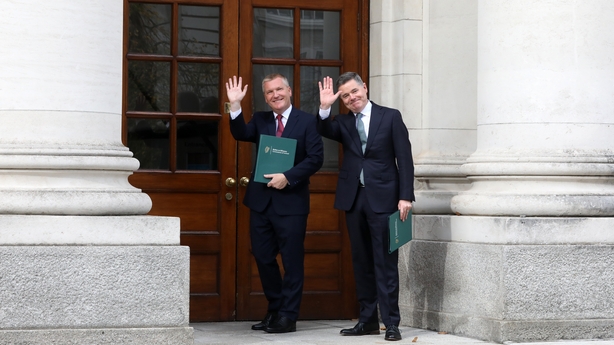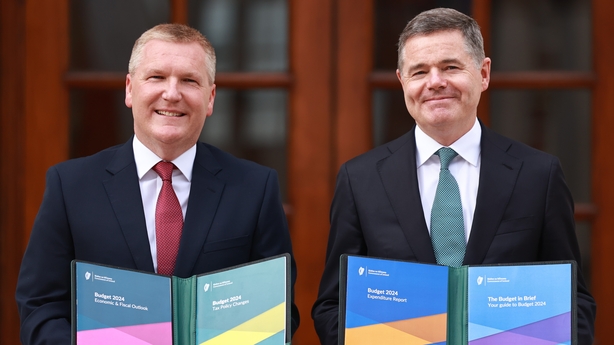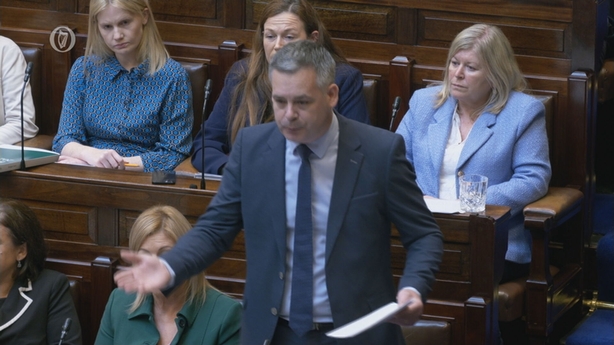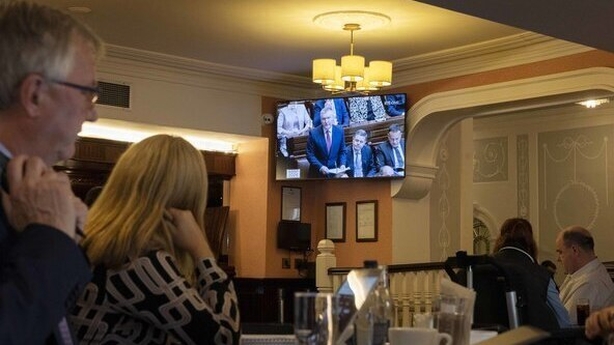In the lead up to this Budget, it was framed by commentators as a choice between a sugar rush of spending versus a more wholesome strategy of saving for the future.
In the end it was a bit of both: A healthy serving of savings to keep the country in shape in the years ahead, with just enough jellybeans to give everyone a little saccharine high.
This spend and save Budget was aimed at meeting the paradoxical political objectives of the coalition that wanted to present itself as decent, yet dependable; lavish yet level-headed; spending where it was needed, but a safe pair of hands.
Much like the Minister for Finance who delivered it, the multi-billion package was strategic, safe and solid. It was carefully crafted to be political without appearing to be so.

For Michael McGrath and his party, the stakes were high. He was delivering the first Budget for Fianna Fáil in that brief since 2010 – political lightyears ago when savage austerity was being imposed in the aftermath of the economic crash.
He had spent much of the time since then playing a very long game striving to overcome his party's tarnished reputation and attempting to restore its credibility on financial matters.
The former accountant stayed true to form. For those looking for signs that this Budget could mark the opening of a year long election campaign, his speech contained little in the way of rousing rhetoric or snappy slogans.
With an eye on his legacy, Mr McGrath declared a "step change" in planning for the future - announcing a number of funds to set some of the surplus aside for the future.
By the time his party colleagues got to their feet to applaud him – a trend that had gone out of fashion for budgets in the post-austerity years - it was clear they believed he had gone some way to purge the demons of the party's financial past.

Minister for Public Expenditure Paschal Donohoe was equally measured, emphasising the "future funds" and arguing that while "carefully managing our public finances is a difficult argument to make" the public finances have been returned to health.
But for all the talk of saving for the future, this was a Budget that sought to offer something to as many groups of the electorate as possible. From families, to farmers, to landlords and renters. Or, to the very planet itself as the Green Party were keen to point out.
An income tax package that is slightly higher than what had been previously flagged is calculated to be worth around €800 to the average earners. The changes, although slightly lower than what some of its TDs had called for, are being lauded by Fine Gael TDs to their party’s support base.
Equally, changes to the Universal Social Charge reflect what Fianna Fáil backbenchers had called for at their parliamentary party meetings.
Social Protection Minister Heather Humphreys boasted the "largest social protection Budget in the history of the State" with an across the board €12 increase in core welfare rates, as well as a number of lump sum payments.
There is a significant cost-of-living package of €2.7 billion - although not as high as the €4.1bn package of last year when inflation was running higher. It includes three energy credits of €150 per household.

The Green Party had a win with a 25% reduction to childcare fees, albeit with a significant compromise that it will not be introduced until next September.
There were also measures in the Budget in response to pressure from Sinn Féin – including a tax relief for renters and mortgage interest relief for those who have had to pay higher interest rates this year.
It all made for a Budget that appeared largely safe from political banana skins - although the delay in introducing the childcare reduction and failure to spread the mortgage relief to more hard-pressed borrowers could cause some tension.
But the difficulty in spreading a Budget thinly and widely is that the coalition left itself open to criticism that it lacked ambition. That - in the middle of a housing crisis and at a time when many public resources are under resourced - it could have done a lot more to repair the many holes in the fabric of our society.
The opposition painted a picture of a Government that has papered over the cracks with one-off measures, while ignoring some of the deeper running problems.

Sinn Féin's Pearse Doherty said there had "never been a finance minister with so much money at his disposal" but that the coalition had "thrown in the towel" on the housing crisis.
Róisín Shortall of the Social Democrats accused the Government of a "sleight of hand" by "using one off payments to mask an erosion of essential core supports for the most vulnerable over man years".
The Simon Communities described it as "a budget of incrementalism" when what was needed was "strident action" to address problems in housing. Its Executive Director Wayne Stanley said that homelessness is unlikely to be slowed by this Budget.
Childcare providers welcomed plans to reduce fees, but said this does little to address a shortage of places and a lack of investment in the sector. Meanwhile, the IMO said there was a missed opportunity to meet the healthcare needs of the nation.
It is these fissures that are likely to surface in public debate between now and the next general election.
But for now, Ministers McGrath and Donohoe are adamant that Budget 2024 will have a noticeable impact in people’s pockets, without storing up problems for the future.
The electorate will decide in time whether their message is too sweet to be wholesome.






